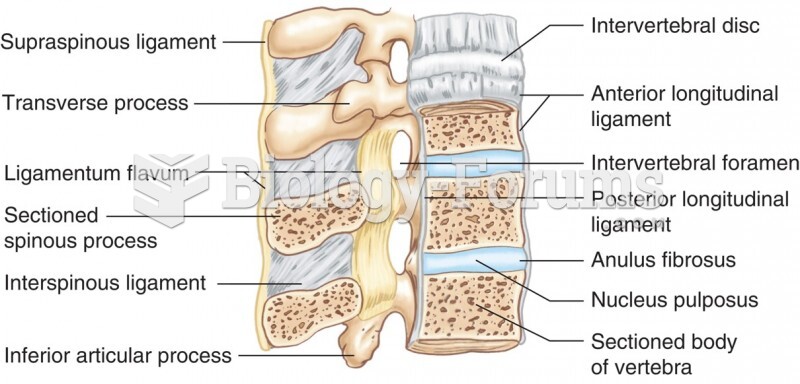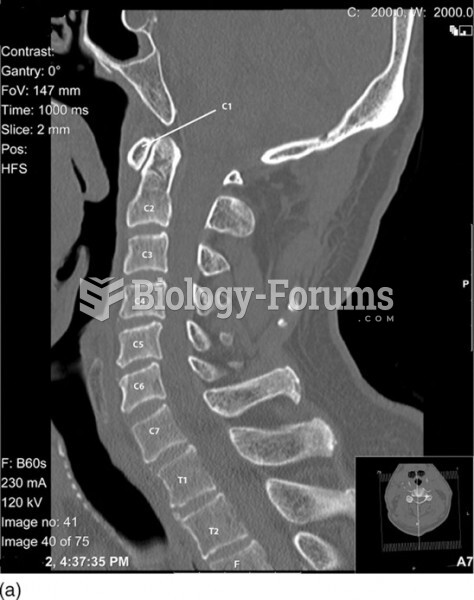|
|
|
Green tea is able to stop the scent of garlic or onion from causing bad breath.
Vaccines cause herd immunity. If the majority of people in a community have been vaccinated against a disease, an unvaccinated person is less likely to get the disease since others are less likely to become sick from it and spread the disease.
A seasonal flu vaccine is the best way to reduce the chances you will get seasonal influenza and spread it to others.
Drugs are in development that may cure asthma and hay fever once and for all. They target leukotrienes, which are known to cause tightening of the air passages in the lungs and increase mucus productions in nasal passages.
Medication errors are more common among seriously ill patients than with those with minor conditions.






